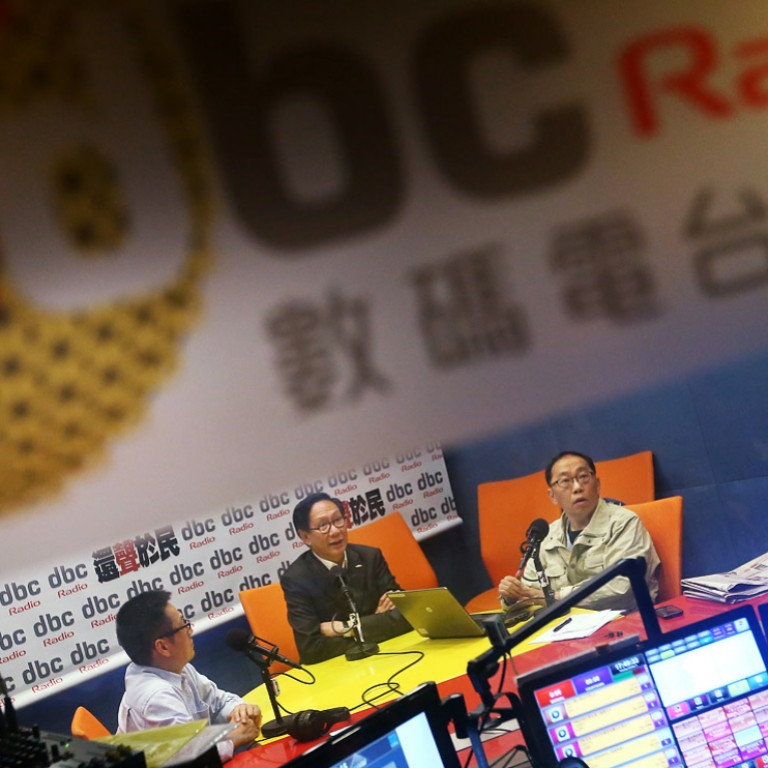
Tuning out: 60 staff laid off as Hong Kong digital broadcaster DBC announces 'streamlining' plan
Digital Broadcasting Corporation is laying off 60 of its 200 staff as it moves to streamline its services but will not cut any of its seven channels, the broadcaster announced last night.
About 30 of the jobs will come from the digital radio station’s news department, which has 40 full and part-time employees. Its 24-hour news channel Radio News will become a youth-orientated channel with newscasts only every half hour.
The move is the latest twist in the troubled and tumultuous history of the broadcaster, which went on air in 2011 but has struggled to find an audience amid boardroom battles and claims of political interference.
“Seven channels will remain. Resources will be focused on the development of three of them and dbcTV,” a statement from the station said.
A spokeswoman said the changes to Radio News would take effect from November 16, with some programmes moving to its flagship current affairs and entertainment channel, Radio Prime, which would otherwise be unaffected.
Four channels will simply play music, with no DJ or presenter. They are Radio Campus, which focuses on students, Radio Smiles, which is aimed at ethnic minorities, Radio Music and Radio CO, which plays Chinese opera.
“As the development of digital radio broadcasting in the city has not been satisfactory in general, DBC hopes that it could maintain its competitiveness with a more flexible operation model through the streamlining,” the statement said.
The affected workers were notified in accordance with legal requirements, she added.
A journalist from the broadcaster, who asked not to be named, said staff were notified of the decision yesterday in a meeting with department management.
He said there had been signs of trouble, including difficulties with recruitment but “I didn’t expect the staff cut would be of such large degree”.
He said it was not easy for digital broadcasters to win market share as people needed specific devices to listen in and the public tended to listen to traditional radio stations. He speculated that the lay-offs might be related to diminishing financial support from the station’s owner, Beijing-loyalist businessman Bill Wong Cho-bau.
Granted a licence in 2008, DBC first hit the airwaves in 2011, but went off air in October the next year as co-founder and former lawmaker “Taipan” Albert Cheng King-hon clashed with Wong, its major investor. There were even claims Beijing officials had intervened, asking Wong to press Cheng not to hire outspoken host Lee Wei-ling.

